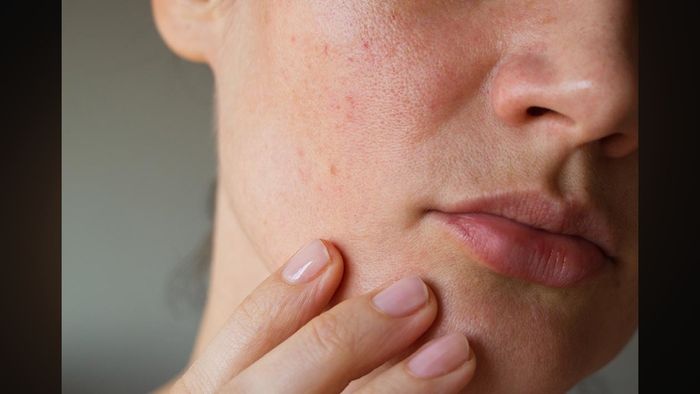Revitalizing Your Skin: Summer Strategies for Rejuvenating Dull Skin
Summer, with its blazing sun and high temperatures, can take a toll on your skin, leading to dullness, dryness, and a lackluster complexion. Exposure to UV rays, increased sweating, and humidity can exacerbate skin problems, making it essential to adopt a skincare routine that addresses these issues.

- Jun 10, 2024,
- Updated Jun 10, 2024, 10:56 PM IST
Summer, with its blazing sun and high temperatures, can take a toll on your skin, leading to dullness, dryness, and a lackluster complexion. Exposure to UV rays, increased sweating, and humidity can exacerbate skin problems, making it essential to adopt a skincare routine that addresses these issues.
1. Hydration: The Foundation of Healthy Skin
Hydration is crucial for maintaining skin's elasticity and radiance. Dehydration can make your skin look tired and dull. Here’s how you can keep your skin hydrated:
Drink Plenty of Water: Aim to drink at least 8 glasses of water a day to keep your skin hydrated from the inside out. Water helps flush out toxins and keeps the skin plump and glowing.
Hydrating Foods: Incorporate water-rich foods like cucumbers, watermelons, oranges, and strawberries into your diet. These not only hydrate your body but also provide essential vitamins and antioxidants.
Topical Hydration: Use hydrating skincare products like serums and moisturizers containing hyaluronic acid, glycerin, and aloe vera. These ingredients help lock in moisture and keep your skin supple.
2. Sun Protection: Shielding Your Skin
One of the primary causes of dull skin in summer is UV damage. Protecting your skin from the sun is essential to prevent further damage and maintain its health:
Sunscreen: Apply a broad-spectrum sunscreen with at least SPF 30 daily, even on cloudy days. Reapply every two hours, or more often if you’re swimming or sweating.
Protective Clothing: Wear hats, sunglasses, and long-sleeved clothing to minimize sun exposure. Opt for fabrics with UPF (Ultraviolet Protection Factor) for added protection.
Avoid Peak Sun Hours: Try to stay indoors between 10 AM and 4 PM, when the sun's rays are the strongest.
3. Exfoliation: Removing Dead Skin Cells
Exfoliation is key to removing dead skin cells that accumulate on the surface, making your skin look dull and rough. Regular exfoliation reveals fresher, brighter skin underneath:
Physical Exfoliants: Use gentle scrubs with fine particles to slough off dead skin. Be cautious not to over-exfoliate, as it can cause irritation and damage.
Chemical Exfoliants: Products containing alpha hydroxy acids (AHAs) like glycolic acid and lactic acid or beta hydroxy acids (BHAs) like salicylic acid can effectively dissolve dead skin cells without the need for scrubbing.
Exfoliation Frequency: Exfoliate 1-2 times a week depending on your skin type. Sensitive skin types should exfoliate less frequently to avoid irritation.
4. Nourishing Your Skin: Diet and Skincare
Nourishment from within and topical care are both critical to revitalize your skin:
Balanced Diet: Consume a diet rich in antioxidants, vitamins, and minerals. Foods high in vitamins C and E, like citrus fruits, berries, nuts, and seeds, can help repair skin and combat oxidative stress.
Skincare Products: Use serums and creams rich in antioxidants, such as vitamin C, vitamin E, and niacinamide. These ingredients help protect against environmental damage and promote collagen production.
5. Moisturization: Maintaining Skin's Barrier
Moisturizing helps maintain the skin’s barrier, preventing moisture loss and keeping your skin soft and smooth:
Lightweight Moisturizers: In summer, opt for lightweight, non-comedogenic moisturizers that won’t clog your pores. Gel-based moisturizers can be a great option for hot and humid weather.
Night Creams: Use a richer night cream to repair and nourish your skin while you sleep. Look for ingredients like ceramides and peptides that strengthen the skin barrier.
6. Detoxification: Purifying Your Skin
Detoxifying your skin helps remove impurities and revitalizes your complexion:
Clay Masks: Use clay masks to draw out impurities and excess oil from your pores. Bentonite and kaolin clay are particularly effective for deep cleansing.
Charcoal Masks: Activated charcoal masks can also help in detoxifying the skin by absorbing toxins and pollutants.
7. Stress Management: Balancing Your Mind and Skin
Stress can have a significant impact on your skin’s health. Managing stress through various techniques can lead to a clearer, more radiant complexion:
Regular Exercise: Exercise boosts circulation, helping to deliver oxygen and nutrients to your skin cells. It also reduces stress levels.
Mindfulness Practices: Engage in mindfulness practices like meditation, yoga, or deep breathing exercises to reduce stress and promote overall well-being.
8. Adequate Sleep: The Natural Rejuvenator
Sleep is essential for skin repair and rejuvenation. During sleep, your body boosts blood flow to the skin, leading to a healthier complexion:
Sleep Hygiene: Aim for 7-9 hours of quality sleep each night. Establish a regular sleep routine and create a calming bedtime environment.
Sleep Position: Try to sleep on your back to prevent sleep lines and wrinkles that can form from pressing your face against the pillow.
9. Natural Remedies: Harnessing Nature’s Power
Natural remedies can provide a gentle yet effective way to rejuvenate dull skin:
Aloe Vera: Aloe vera gel soothes and hydrates the skin, promoting healing and reducing inflammation.
Cucumber: Applying cucumber slices or cucumber juice can cool and refresh your skin, reducing puffiness and adding a glow.
Honey: Honey is a natural humectant that helps retain moisture and has antibacterial properties. Use it as a mask to hydrate and soften your skin.
Rejuvenating dull skin during the summer involves a combination of proper hydration, sun protection, exfoliation, nourishment, moisturization, detoxification, stress management, adequate sleep, and natural remedies. By adopting these strategies, you can maintain a healthy, glowing complexion throughout the summer months. Prioritizing natural and holistic approaches not only benefits your skin but also promotes overall well-being, allowing you to embrace the summer with confidence and radiance.